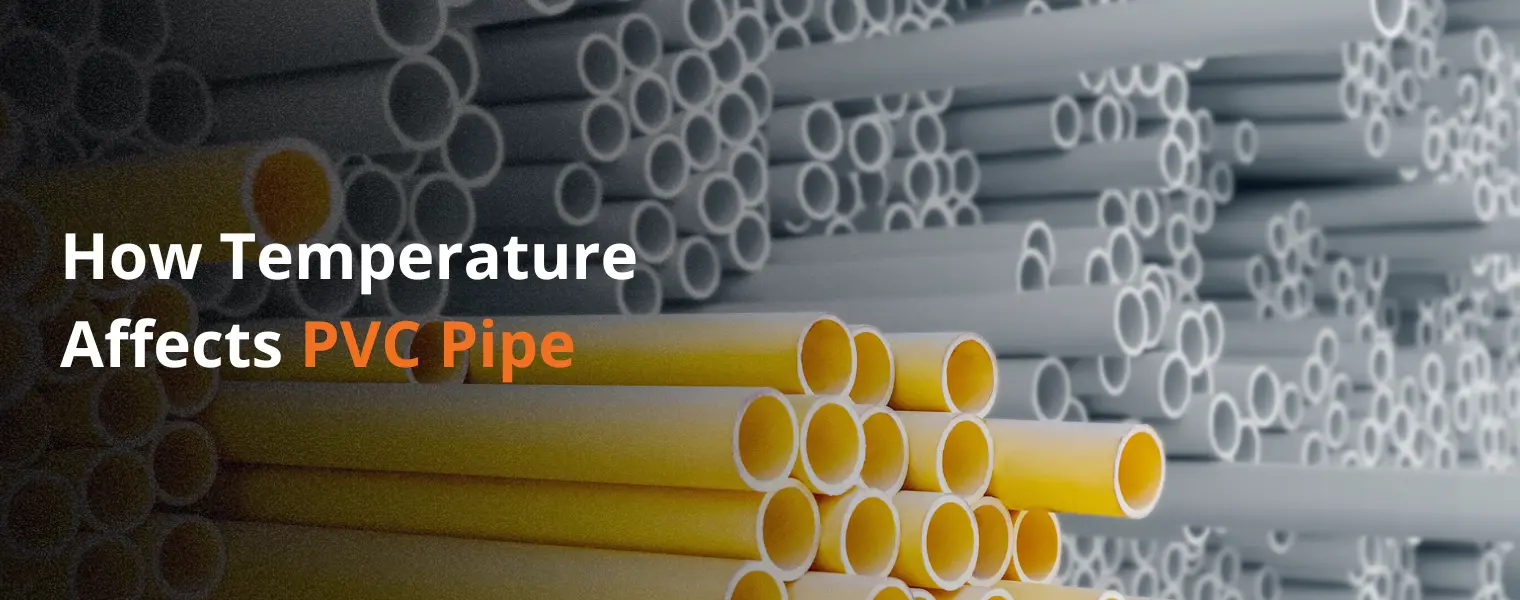
Polyvinyl Chloride (PVC) pipes are widely used in various applications due to their durability, affordability, and versatility. However, it's important to understand how temperature can impact the performance and characteristics of PVC pipes. In this blog post, we will explore in detail the effects of temperature on PVC pipes, including changes in dimensions, capacity, and stiffness. Additionally, we will highlight how Polyfab provides the best PVC pipes for your specific needs.
PVC pipes are affected by both high and low temperatures. Extreme temperatures can cause thermal expansion or contraction of the material, leading to changes in dimensions, capacity, and stiffness. It is crucial to consider these effects during the installation and operation of PVC pipe systems to ensure their long-term performance and reliability.
PVC pipes are affected by both high and low temperatures. Extreme temperatures can cause thermal expansion or contraction of the material, leading to changes in dimensions, capacity, and stiffness. It is crucial to consider these effects during the installation and operation of PVC pipe systems to ensure their long-term performance and reliability.
The baseline or upper temperature for PVC pipes typically depends on the specific grade and formulation of the PVC material. Generally, PVC pipes have a maximum recommended operating temperature of around 140°F (60°C). Exceeding this temperature threshold can lead to detrimental effects on the pipe's performance and structural integrity. Therefore, it is essential to adhere to manufacturer guidelines and consult experts to determine the suitable temperature limits for your PVC pipe applications.
• Temperature Effect on PVC Pipe Dimensions: Temperature variations can cause PVC pipes to expand or contract. When exposed to high temperatures, PVC pipes can expand, leading to an increase in their length, diameter, and overall dimensions. Conversely, in cold temperatures, PVC pipes may contract, causing a reduction in their size. These dimensional changes must be considered during the installation process, as they can affect joint integrity, alignment, and overall system performance.
• Temperature Effect on PVC Pipe Capacity: High temperatures can impact the load-bearing capacity of PVC pipes. The thermal expansion of PVC pipes can decrease their structural rigidity, potentially affecting their ability to withstand external forces and pressure. It is crucial to consider the anticipated temperature variations and select PVC pipes with appropriate wall thickness and structural strength to ensure optimal performance under varying temperature conditions.
• Temperature Effect on PVC Pipe Stiffness: Temperature fluctuations can affect the stiffness and flexibility of PVC pipes. High temperatures can cause PVC pipes to become more flexible, which may alter their ability to resist bending or deformation. Conversely, cold temperatures can make PVC pipes more rigid, potentially increasing their vulnerability to cracking or breakage. Understanding the temperature-dependent behavior of PVC pipes is essential for designing and installing systems that can accommodate these changes without compromising structural integrity.
When it comes to PVC pipes, Polyfab is a trusted provider known for offering high-quality products that meet industry standards. Their PVC pipes are manufactured using top-grade materials and advanced manufacturing processes, ensuring excellent durability, reliability, and performance. Polyfab understands the importance of temperature effects on PVC pipes and provides solutions that are designed to withstand temperature variations while maintaining optimal functionality. Whether you need PVC pipes for water supply, drainage systems, or other applications, Polyfab offers a wide range of options tailored to your specific needs.